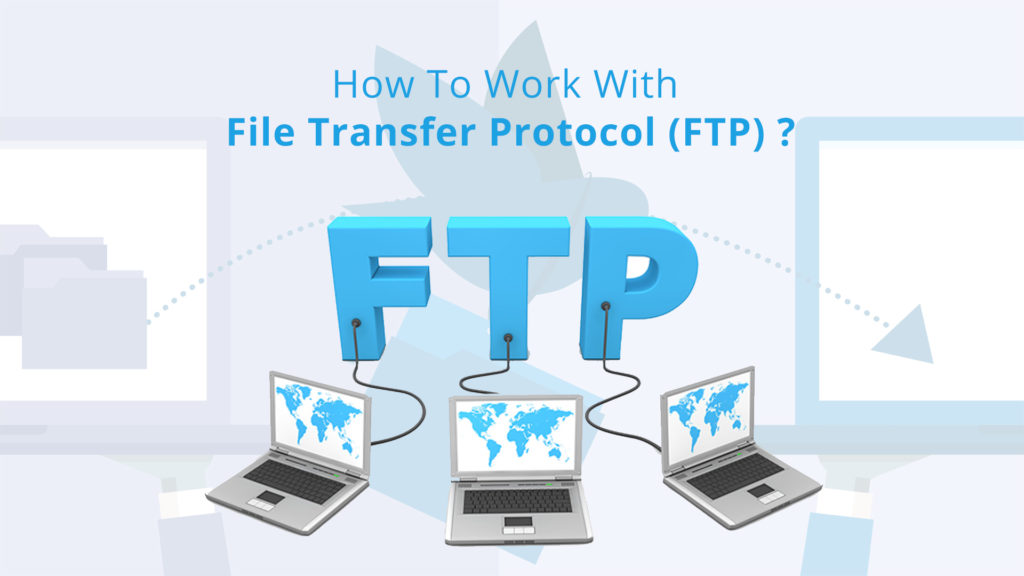In today’s dynamic business landscape, mobile accessibility is increasingly vital for Enterprise Resource Planning (ERP) systems. Businesses recognize its value in enhancing flexibility and engagement, with rising mobile ERP usage indicating its significance for on-the-go productivity.
Enabling remote access to Custom ERP Software, regardless of location, helps businesses witness notable efficiency gains and operational improvements.
Mobile accessibility in custom ERP software has emerged as an essential requirement in contemporary business operations. Relying solely on desktops or laptops for ERP usage is no longer feasible in today’s dynamic environment. The demand for handheld devices has grown significantly as users seek convenient and efficient solutions.
Table of Contents
Understanding Mobile Accessibility
Mobile ERP systems refer to Enterprise Resource Planning (ERP) solutions that are accessible via mobile devices, providing users with the flexibility to access critical business information and functionalities on the go.
These systems play a significant role in modern business operations by enabling remote access to essential data and processes, enhancing flexibility and productivity.
Moving forward, let’s compare traditional ERP and Mobile ERP solutions.
Traditional ERP solutions are typically accessed through desktop computers or on-premises servers, limiting accessibility to office-based environments. In contrast, mobile ERP solutions offer remote access via smartphones and tablets, enabling users to stay connected and productive while on the move.
Mobile ERP solutions also tend to have simplified interfaces and streamlined functionalities tailored for mobile usage, providing a more user-friendly experience compared to traditional ERP systems.
The Importance of Mobile Accessibility in Custom ERP Systems
Mobile accessibility plays a crucial role in the effectiveness and efficiency of custom Enterprise Resource Planning (ERP) systems. With the rise of remote work and the increasing need for real-time decision-making, businesses are recognizing the significance of mobile access to critical data and information.
Let’s explore the importance of mobile accessibility in custom ERP software and how it can revolutionize businesses.
- Expanded Data Accessibility: Mobile ERP systems empower businesses to access critical data and information from anywhere, as long as an internet connection exists. This capability allows companies to stay informed about their operations in real-time, enabling timely decision-making. Whether it’s sales figures, inventory levels, or customer data, having access to this information on the go provides businesses with a competitive edge.
- Increased Efficiency: Mobile ERP technology can dramatically enhance process efficiencies and transform businesses’ operations. By enabling employees to access ERP systems through their mobile devices, tasks that were once tied to a physical location can now be performed on the move. This mobility eliminates the need for employees to be tied to their desks, increasing productivity and reducing operational bottlenecks.
- Enhanced Customer Interactions: Mobile ERP enables firms to offer seamless and personalized customer interactions. With easy access to real-time customer data, businesses can provide immediate assistance, respond to inquiries promptly, and tailor their services to meet individual needs. This level of responsiveness and personalization enhances customer satisfaction and builds stronger relationships.
- Flexibility and Adaptability: Mobile apps provide users with the flexibility to access ERP software from anywhere, at any time, using their smartphones or tablets. This flexibility allows employees to stay connected and perform tasks even when they are away from their desks or out of the office. Moreover, mobile ERP systems can adapt to different screen sizes and operating systems, ensuring a seamless user experience across various devices.
Top 5 mobile accessibility features that should be included in custom ERP software
To create this list, it is important to consider the needs of users with disabilities and ensure their equal access to the system. Here are the top 5 mobile accessibility features that I would recommend:
- Voice Recognition and Voice Commands: Including voice recognition capabilities allows users to interact with the ERP system hands-free. This feature enables users with mobility impairments or those who prefer a voice interface to navigate the system, input data, and perform various tasks more efficiently.
- Screen Reader Compatibility: Ensuring compatibility with screen reader software is crucial for users with visual impairments. By incorporating proper labeling and descriptive text, the ERP system can provide an accessible experience, allowing screen readers to interpret and convey information accurately.
- Adjustable Font Sizes and High Contrast Mode: Offering the ability to adjust font sizes caters to users with visual impairments who may require larger text for improved readability. Additionally, incorporating a high contrast mode allows users with low vision or color blindness to distinguish elements more easily, enhancing their overall experience.
- Keyboard Navigation and Shortcut Support: Including keyboard navigation and shortcut support allows users who have difficulty with touchscreens or limited dexterity to navigate through the ERP system efficiently. This feature ensures that all functionality can be accessed without the need for precise touch interactions.
- Alternative Text for Images and Multimedia: Providing alternative text descriptions for images and multimedia content ensures that users with visual impairments can understand the context and meaning of visual elements. This feature is essential for users relying on screen readers or assistive technologies to perceive information that would otherwise be inaccessible.
Challenges and best practices for implementing mobile accessibility in custom ERP systems.
Implementing mobile accessibility in custom ERP software presents various challenges and requires adherence to best practices for optimal results. These challenges may include ensuring compatibility across different devices and platforms, maintaining data security, and providing a seamless user experience.
By following best practices such as prioritizing responsive design, incorporating accessibility features, and conducting thorough testing, businesses can overcome these challenges and effectively implement mobile accessibility in their ERP systems.
Let’s discuss of the major challenges and their best practices.
Creating a User-Friendly Interface
- Adapting complex functionalities and vast data into a concise and intuitive mobile interface.
- Best Practice: Prioritize responsive design principles to ensure automatic adjustment to different screen sizes and orientations.
Ensuring Consistent Performance
- Maintaining seamless functionality across various mobile devices and connectivity conditions.
- Best Practice: Implement caching mechanisms to store frequently accessed data locally and synchronize with the server during stable connections.
Challenge: Accessibility for Users with Disabilities
- Making the ERP system accessible to individuals with visual, hearing, or motor disabilities.
- Best Practice: Adhere to WCAG guidelines, incorporating features like screen readers, alternative text, and keyboard navigation options.
Security Concerns
- Protecting sensitive business information from unauthorized access or data breaches.
- Best Practice: Implement robust authentication, encryption, and secure data transmission protocols.
Customization Options
- Providing users with customization features to personalize their interface.
- Best Practice: Offer customization options such as font adjustments, color contrast settings, and customizable dashboards.
Testing and User Feedback
- Identifying compatibility issues and usability concerns through continuous testing and user feedback.
- Best Practice: Conduct regular testing on various devices, operating systems, and accessibility tools and incorporate user-driven improvements to enhance the overall user experience.
Future Trends and Innovations
The future of mobile ERP systems holds exciting prospects driven by emerging technologies and evolving business needs. From the Integration of AI and ML to advancements in accessibility and connectivity, mobile ERP solutions are poised for transformative growth and innovation.
To better understand the future trends and innovation in mobile ERP systems, let’s divide the answer into three sections –
- Emerging technologies shaping the future of mobile ERP systems
- Predictions for how mobile ERP solutions will evolve to meet changing business needs
- Opportunities for innovation and growth in mobile accessibility for ERP systems
Emerging technologies shaping the future of mobile ERP systems
The future of mobile ERP systems is heavily influenced by emerging technologies that are poised to reshape the landscape. Technologies such as artificial intelligence (AI), machine learning (ML), and augmented reality (AR) are set to play a significant role in enhancing the capabilities of mobile ERP systems.
AI and ML algorithms can analyze vast amounts of data in real-time, through which it can provide valuable insights and predictive analytics to users. Augmented reality, on the other hand, can revolutionize how users interact with ERP systems by overlaying digital information onto the physical environment, enabling immersive and intuitive experiences.
Predictions for how mobile ERP solutions will evolve to meet changing business needs
As businesses continue to evolve, so too will mobile ERP solutions to meet their changing needs. Predictive analytics will become more prevalent, allowing businesses to anticipate trends and make proactive decisions. Real-time data processing capabilities will be enhanced, enabling users to access up-to-date information instantly.
Furthermore, the Integration of IoT devices into mobile ERP systems will enable seamless connectivity and data exchange between various devices and systems, driving efficiency and productivity.
Opportunities for innovation and growth in mobile accessibility for ERP systems
The future presents numerous opportunities for innovation and growth in mobile accessibility for ERP systems. Advancements in accessibility technologies, such as improved voice recognition and gesture controls, will make ERP systems more accessible to users with disabilities.
Wearable technology integration will enable users to interact with ERP systems on the go, enhancing mobility and flexibility. Additionally, the continued development of mobile applications and platforms will provide new avenues for innovation, allowing ERP systems to adapt to the ever-changing needs of users and businesses alike.
Final Thoughts
Mobile accessibility in custom ERP software is paramount in today’s digital age, offering flexibility and efficiency to businesses. It enables seamless access to critical data and functionalities, regardless of location, fostering productivity and agility.
Businesses are urged to embrace mobile ERP solutions to harness the benefits of enhanced efficiency and productivity. By prioritizing mobile accessibility, organizations can streamline operations and empower employees to work more effectively, driving success in an increasingly competitive landscape.
The future of mobile ERP systems looks promising, with ongoing advancements in technology and accessibility. By embracing mobile ERP solutions, businesses can stay ahead of the curve and capitalize on opportunities for growth and innovation in the digital era.

